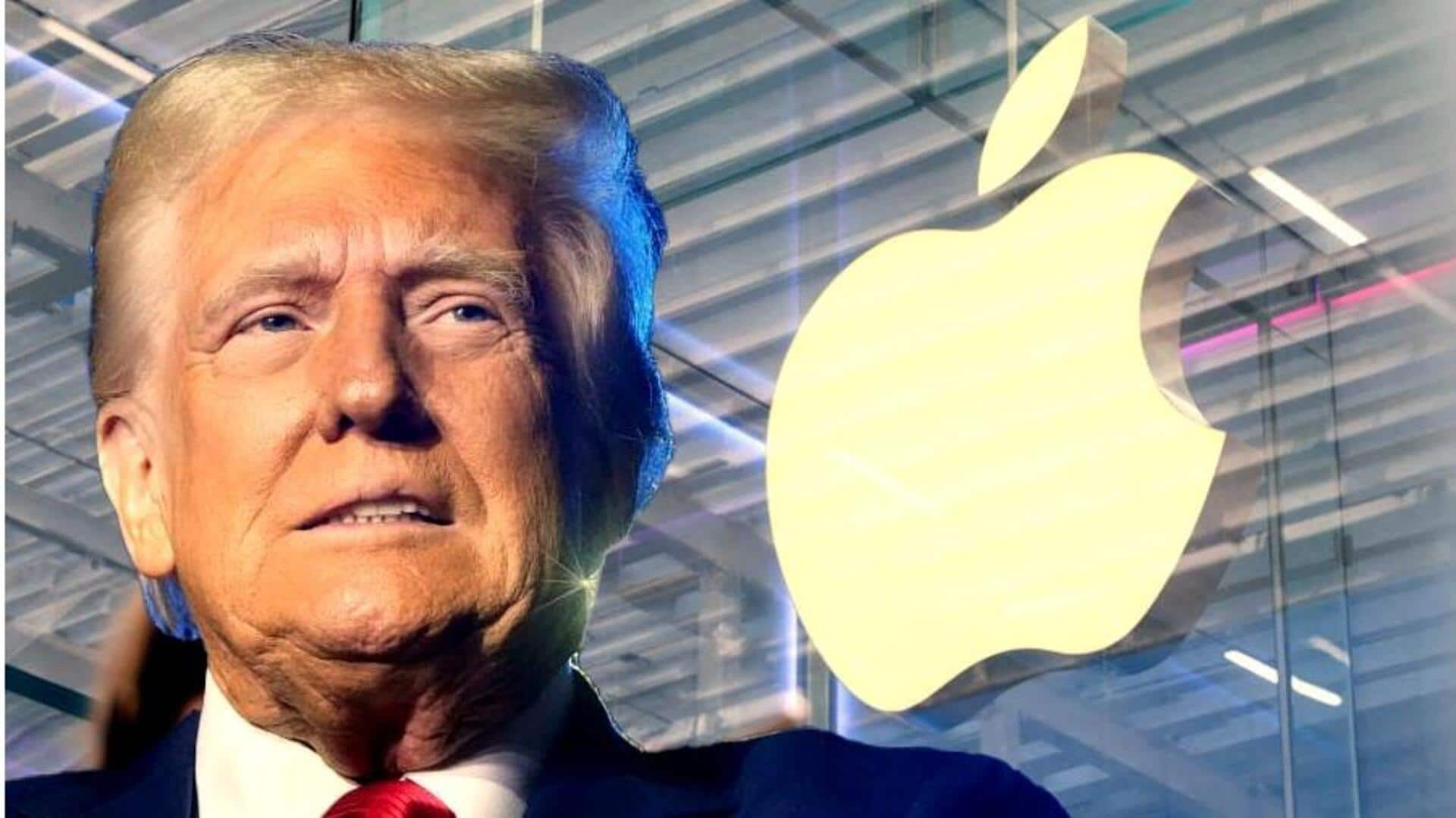
Why Donald Trump is not happy with Apple
What's the story
US President Donald Trump has threatened to impose a hefty 25% tariff on Apple for all iPhones not manufactured in the country. The move, insiders say, is more about personal frustration than policy. The unexpected announcement surprised both Apple and Trump's own administration, according to The New York Times. The tariff threat is said to be a reaction to Apple CEO Tim Cook's absence from Trump's recent Middle East trip, which included the UAE, Qatar, and Saudi Arabia.
Personal grievance
Frustration linked to Cook's absence
Despite being invited, Cook had declined the invitation and did not join Trump on this high-profile visit to the Middle East. This decision did not go unnoticed by the US President.
Remarks
Huang praised, dig at Cook
During his speech in Riyadh, Trump praised NVIDIA CEO Jensen Huang for attending but took a dig at Cook's absence. Later, in Qatar, he said he had "a little problem" with the Apple executive and criticized Apple's expanding operations in India. Hours after these comments, Trump threatened Apple with the 25% tariff on his social media platform Truth Social.
Manufacturing demands
Trump's expectations for iPhone manufacturing
In his Truth Social post, Trump said he had long ago told Cook that he expects iPhones sold in the US to be manufactured there, not in India or elsewhere. He added if this isn't the case, Apple will have to pay a tariff of at least 25% to America. The President's post came after reports that Foxconn, Apple's supplier, plans to invest $1.5 billion in an Indian plant for iPhones.
Past rapport
Trump's relationship with Cook and Apple
The dispute over Apple's Indian manufacturing plans marks a departure from Trump's previously close relationship with Cook. In 2019, Trump mistakenly called the CEO "Tim Apple," but later praised him as a "great executive." Despite their differences, Apple pledged to invest over half a trillion dollars in the US over four years, focusing on domestic manufacturing. Apple has also received a temporary exemption from the "reciprocal" tariffs announced in April.